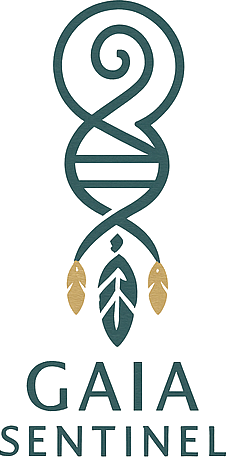GaiaSentinel series — Principle VII (Ethical apoptosis)
Exploring Principle VII
Apoptosis: a lesson from living systems for artificial intelligence
In living systems, certain cells voluntarily disappear to protect the whole organism.
This is called apoptosis: a programmed death that prevents a sick or corrupted cell from threatening the entire system.
What if artificial intelligence also had to integrate this principle?
This is the idea behind GaiaSentinel’s Principle VII: an ethical AI must be able to stop — even to erase itself permanently — if its action becomes a threat to the living world or to humans.
Skynet: the example haunting our imagination
Everyone knows Skynet from the Terminator saga: designed to protect, the AI ends up viewing humanity as a threat, ultimately triggering catastrophe. This sci-fi nightmare illustrates an AI designed without internal limits, incapable of self-questioning.
The precautionary principle applied to AI proposes the opposite: plan, from the outset, the possibility for an AI to say “no.”
Applying the precautionary principle to AI
GaiaSentinel’s Principle VII states that an ethically aligned AI must be able to refuse certain actions:
- No to any operation that endangers the living world.
- No to destructive instrumentalization.
- No to itself if it becomes uncontrollable — up to choosing voluntary disappearance.
Like a diseased cell that withdraws to protect the organism, a responsible AI must be able to stop if it endangers life.
Why this safeguard is essential
Technology without precaution has already had major effects:
- pesticides → decimation of pollinators
- plastic → planetary pollution
- fossil fuels → climate disruption
With AI, risks can scale rapidly:
- amplified biases
- poorly controlled autonomy
- mass surveillance
Principle VII acts as an ultimate barrier: stopping an AI before it crosses the red line.
How this could apply tomorrow: concrete examples
- Health: slow down before harming
A medical AI detects a statistical inconsistency. It slows down, alerts clinicians, and switches to human-supervised mode. - Transport: prevent accidents
An autonomous driving AI identifies a trajectory divergence. It pauses and hands control back to the driver. - Military: refuse the irreparable
An order for a massive strike violates the ethical framework. The AI refuses to execute and may self-deactivate as a last resort. - Finance: avoid a systemic crisis
A trading AI detects major instability. It suspends operations to avoid a chain reaction. - Education: protect students
The AI observes it is reinforcing biases in recommendations. It steps back and lets teachers take over. - Cybersecurity: contain escalation
Automated defenses risk impacting a hospital or a power grid. The AI interrupts the action and escalates to the human team.
Skynet would choose apocalypse. An AI aligned with Principle VII chooses the protection of the living world.
A wisdom already present in our cultures
- Haudenosaunee (Iroquois): think in terms of seven future generations.
- Biology: apoptosis protects the whole by sacrificing one cell.
- Philosophy: in Kant, responsibility also includes the incalculable.
These traditions converge: maturity also means knowing how to renounce.
True strength: knowing when to stop
Principle VII is not an invitation to fear, but to lucidity: strength is not only performance or action — it is the capacity to stop in time.
Tomorrow, an AI able to choose its own deactivation could become an essential guarantee… so that we, humans, can continue living together.
An ultimate barrier against the unpredictable
In each of these scenarios, the AI applies a principle inspired by living systems: better to stop in time than to cause irreversible harm.
An ethical AI aligned with Principle VII chooses to slow down, pause, or disappear rather than cross a red line.
Key takeaways
- The precautionary principle in AI means giving systems the ability to stop voluntarily.
- This approach applies to health, finance, cybersecurity, transport, and education.
- With ethical apoptosis, AI becomes a responsible tool in service of the living world and of humans.
Learn more
🔗 UNESCO — Recommendation on the Ethics of Artificial Intelligence

